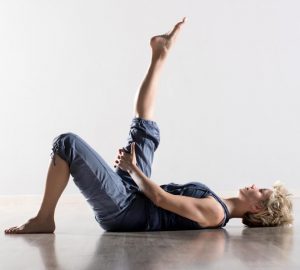Exercise has a way of sneaking up on us, and even slight lifestyle alterations can lead to remarkable results, both physically and mentally. In fact, through regular activity, you may be outsmarting your brain, tricking it into liking exercise through repeated exposure. It is hypothesized, that even slight physical improvements in fitness may increase the sensitivity of dopamine in the brain which means that, over time, exercise feels rewarding! Long-time exercisers are collectively saying “of course”, while those newer to it are lamenting, “I sure hope so!”
Overall, it is wonderful to see an increased focus on mental health, the determined emphasis on decreasing stigma around supports, and the authentic inclusion of psychology and mental fitness as an impactful and integral component of our overall wellness goals. Mental health is no longer viewed as a side project, it is a cornerstone piece of the puzzle, and a requirement for holistic wellbeing. While it took us a bit longer to do so in the west, as compared to some of the eastern cultures, it is now generally accepted that one cannot separate mental and physical health; indeed, inactivity is no longer an alternative when it comes to mental health and overall well-being.
The benefits of exercise on our mental health abound, studies and subsequent scholarly articles expound data declaring the correlation. Ongoing research on the subject of brain-body connection, and specifically the benefits of exercise, continue to reveal strikingly positive conclusions and direction. The science tells us that movement makes us better in several key areas, including the development of a healthier brain at any age, overall better mood, clearer thinking, better focus, increased sex drive, greater sense of control and personal empowerment, just to highlight a few.
Further, prolonged exercise has demonstrated similar, if not greater effectiveness in the treatment of mild depression as taking antidepressant medication. Mental health professionals are increasingly suggesting clients expand their physical activity endeavours, adding physical activity to treatment plans for anxiety and other mental health challenges. While treatment of specific mental health conditions is not the focus of this article, the relative strength of exercise in supporting the treatment of mental health conditions is noteworthy and should not be overlooked as we continue to see increases in diagnosed depression and anxiety across age groups.
What we are learning about the brain and exercise is remarkable, and new discoveries continue to elucidate exciting correlations. Dr. Wendy Suzuki, Professor of Neuroscience and Psychology at the New York University Center for Neural Science, posits that exercise is quite possibly the most transformative thing we can do for our brains. Her research suggests that exercise positively affects key areas of the brain including the prefrontal cortex (personality, focus, attention and decision-making) and the hippocampus (memory). Dr. Suzuki notes that the effects of exercise are felt both long and short term. In the short term, a single workout has been shown to increase dopamine, serotonin and noradrenaline – feel good chemicals that can also help with attention and focus for at least 2 hours afterwards. Long term, we see increases in neuroplasticity (generating new neural pathways and connections) and an overall better ability to form and recall long-term memories. Academia aside, ask anyone who is regularly active how exercise affects them, and they’ll typically share some of the positive symptoms we have outlined. From a mental health-based perspective, it is increasingly understood that movement is medicine. Why is that?
Let us consider our relationship with exercise. Exercise is in if you are. Exercise does not care about who you are, what you are into, where you grew up, how much money you make, the education you have, the religion you practice or your political stripes. While barriers may exist, seeking creative solutions is possible. Some forms of exercise may require financial resources; however, it is typically possible to find ways to move without money. For those working multiple jobs, or balancing work and family life responsibilities, sometimes finding ways to sneak in a walk or take the stairs is a place to start. Exercise will not judge you. Exercise is in, and when you start your relationship with it, it triggers a multitude of beneficial, multi-dimensional repercussions that are available to everyone. Socially, exercise brings people together, creating relationships and connections. Sweating together has been described as warriors uniting, decompressors commiserating humans de-stressing, coming together to push themselves, against themselves. Exercise has the power to unite.
While we do see immediate short-term effects, expecting the full -power results of exercise instantly would be a mistake. Like all new behaviour patterns, exercise requires some time before revealing the multitude of long-term benefits it offers. We are wired to resist, and it is typical that as we move through the initial stages of our relationship with exercise, we may feel compelled to give up. Consistency, creativity and commitment to exercise opens the door to a wonderful long-term relationship with incredible benefits. Stick with it.
One remarkable and somewhat counterintuitive pattern that frequently presents itself during times of stress is the abandonment of exercise when we get busy or overloaded. Exercise, it would seem, despite the benefits outlined herein, is often abandoned when we are stressed. Exercise is often one of the first things to be eliminated when we are overwhelmed. While, deceptively, this behaviour may feel helpful, truthfully, we see the opposite as true; when we are overloaded and overwhelmed, that is when we need exercise most. Perhaps this is where we begin to look at exercise as a partner in wellness?
Life can be stressful; everyone is busy and stress feeds on inactivity. There are multiple opportunities to ghost in our relationship with exercise, but when stressed, we need physical activity most. And while keeping active matters during these challenging times, we are always free to adapt our activities so as to ensure we are able to keep going. Exercise promises a long-term growth trajectory that trends upward over time. Exercise is not asking for much, just a few sweats per week so that it can help you realize your holistic wellness goals and often connect with humans in real life. Exercise is offering an enormous number of benefits for a relatively small investment.
By Cory Donald (R. Psych.) – FORWARD Psychology & Wellness








